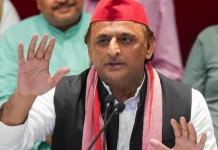Imagine stepping into a mosque—quiet, sacred, a place to breathe and reflect. Now picture it buzzing with slogans, pamphlets, or a politician’s megaphone. Jarring, right? In 2025, as debates swirl around religion and power, mosques shouldn’t be political playgrounds. They’re for faith, community, and peace—not vote banks or rallies. Let’s dig into why this matters, from India’s dusty lanes to the world beyond.
In This Article:
The Big Picture – Why Mosques, Why Politics, Why Now?
Mosques have been cornerstones for centuries—places of worship, learning, and charity. In India alone, there are over 300,000, many tied to Waqf boards managing vast lands. Globally, from Istanbul to Indiana, they’re symbols of identity. Politics keeps creeping in. In India, it’s election season vibes—leaders eyeing Muslim votes. Abroad, think Middle East, where mosques sometimes double as protest hubs. Why now? Power’s up for grabs—global tensions, local polls, and faith are an easy lever to pull. For me, it’s simple: a mosque’s soul is spiritual, not strategic.
The Breakdown – How Politics Sneaks In
- India’s Vote Game: Take the Waqf (Amendment) Bill, 2024—mosques are suddenly front-page news. Politicians hit Friday prayers with promises, or imams get nudged to back a party. In Uttar Pradesh, with 1.3 lakh mosques, that’s a lot of ears—20% of voters are Muslim.
- Pulpit Power: Khutbahs (sermons) are for guidance, not agendas. Yet, some clerics slip in political jabs—protests over CAA in 2019 saw Delhi mosques rallying crowds. It’s not new—Hyderabad’s Mecca Masjid once echoed with anti-Nizam speeches in the 1940s. History’s cool, but today it’s a fine line.
- Waqf Woes: In India, Waqf properties—think 9.4 lakh acres—are political goldmines. Encroachments spark blame games; the 2024 bill’s a BJP hot potato, with opposition crying foul. Mosques get dragged in, less as sanctuaries, more as bargaining chips.
The Problem – Why It’s a Bad Fit
A mosque’s not a town hall. Prayer’s about unity—five times a day, shoulder to shoulder, rich or poor. Politics divides us—us vs. them, red vs. blue. In India, mixing the two risks alienating folks who just want peace, not propaganda. Data backs this: a 2023 Pew survey showed 68% of Indian Muslims see religion as personal, not political. Globally, it’s messier—think Egypt’s Muslim Brotherhood using mosques as bases, sparking crackdowns. Here’s my take: when sacred spaces turn into soapboxes, they lose their magic. And practically? It invites trouble—riots, raids, or worse.
The Fix – Keeping It Pure
- India’s Playbook: Enforce the Places of Worship Act, 1991—keep religious sites neutral. Mosques under Waqf could ban political events outright—Kerala’s doing it quietly, with community councils stepping in. Clerics could stick to faith—leave the stump speeches to the streets.
- Global Lessons: Saudi Arabia’s tight leash on imams keeps mosques off-limits for politics (though it’s state-driven there). The UK’s got charity laws—mosques registered as trusts can’t campaign. India could borrow that—Waqf boards audited not just for cash but intent.
- Community Muscle: In Delhi’s Jamia Nagar, locals shushed a 2024 poll rally near a mosque. Grassroots can say no—faith first, flags second. Imagine 300,000 mosques setting that tone—powerful, right?
The Tools – Who’s Got the Reins?
In India, the government’s got muscle—Section 144 can ban gatherings, used during 2020’s Shaheen Bagh stir near mosques. Waqf boards, if cleaned up post-2024 bill, could enforce “no politics” zones. Courts too—PILs have hit the Supreme Court over mosque misuse before. Globally, it’s trickier—free speech clashes with sanctity. But here’s the kicker: it’s not just law, it’s will. Communities, clerics, and even you and me—we decide what a mosque stands for.
The Long Game – What’s at Stake?
If mosques stay sacred, India could dodge communal flare-ups—think 1992 Babri vibes, but avoided. Globally, it’s a model—faith as refuge, not fuel. Picture this: 3 lakh mosques as peace hubs, not pawns—maybe inspiring 1 million jobs in education or charity via Waqf, not politicking. Risks? If politics wins, mistrust grows—68% of Muslims might drift from mosques, per that Pew stat, and tensions spike. Is this a reset or a rupture? Time’s watching.
By – Manoj




